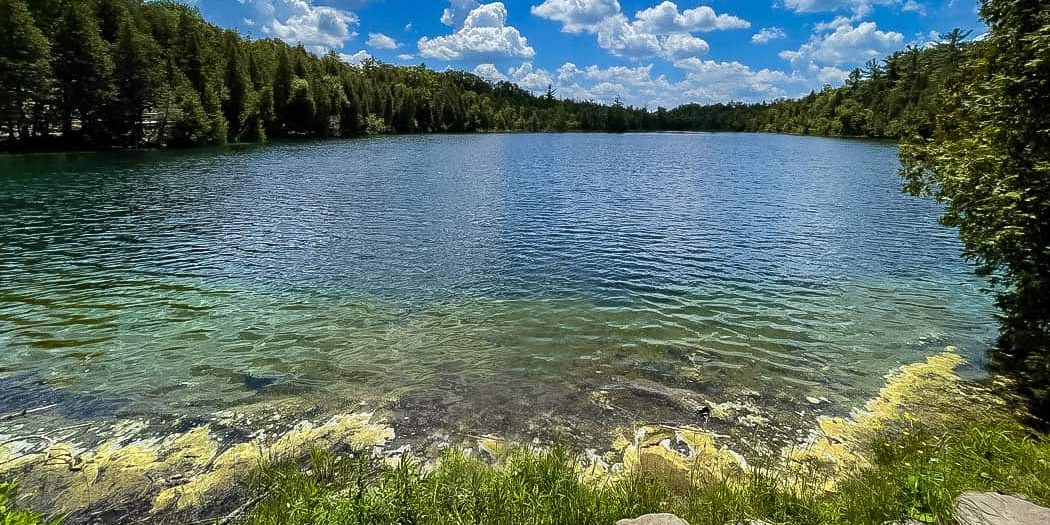Crawford Lake in Milton chosen to represent new period in human history
Published July 11, 2023 at 5:44 pm

Milton’s Crawford Lake has become international news today as a body of scientists has proposed it as a significant marker in earth’s history.
The lake, which is under the umbrella of Conservation Halton, has been selected as the most suitable global marker site, or ‘Golden Spike’, to define the start of a new period in human history.
For decades, scientific researchers from Canadian and international institutions have taken a special interest in Crawford Lake.
This small body of water formed more than 10,000 years ago as a rare meromictic lake, which is a type of deep lake with two layers of water that never intermix.
The physical qualities of this tiny lake and its strict management as a protected area have contributed to well-preserved annual sediment layers in the lakebed.
Researchers from around the world are now proposing science looks to these layers and the stories they reveal about human-caused planetary change to help determine a new geologic epoch: the Anthropocene.
Even among meromictic lakes, Crawford Lake is rare in that while most lakes like this have anoxic bottom waters, the water column here is fully oxygenated.
Each year, one summer and one winter worth of sediment is deposited at the bottom of the lake. Called varves, the layers contain information about local and atmospheric chemistry from the year it was deposited.
Just this year, Crawford Lake was found to have the best record of nuclear bomb testing from the 1950s to 1963.
If the Anthropocene is internationally ratified, which isn’t guaranteed, it will end the Holocen Epoch, in which humans have existed for almost 12,000 years, since the last ice age. It will mark a new unit of geological time that responds to the significant impacts human activity has had on the planet.
For more, visit the Conservation Halton website.
INhalton's Editorial Standards and Policies




